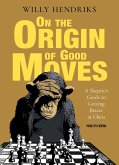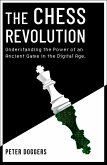Chess has always been more than a simple game. Through its seemingly simple pieces and rules, chess reflects the complexity of human existence. This book seeks to explore the fascinating journey of this ancient game, from its humble beginnings in Eastern civilizations to its current status as a universal discipline that combines art, science and sport.
The journey of chess begins in India, where chaturanga emerged as an early model of the game. From here, the game moved to Persia, adopting the name shatranj and developing a symbolism that linked its moves to administration and diplomacy. With the arrival of the Islamic conquests, chess spread rapidly to the Arab world, where it was refined and celebrated. In Europe, medieval chess became a living metaphor for feudal society. But it was not until the Renaissance that chess began to transform into the game we know today. The rules were modified, the queen became the most powerful piece on the board, and treatises by authors such as Luis Ramirez de Lucena began to systematize strategies, marking the beginning of a more scientific approach to the game.
The advent of championships and the professionalization of chess in the 19th and 20th centuries was a turning point that consolidated its place in modernity. Grandmasters such as Wilhelm Steinitz, Emanuel Lasker, José Raúl Capablanca and Alexander Alekhine not only dominated the boards, but also elevated chess to a level of intellectual sophistication never seen before. Every game became a work of art, and every tournament a spectacle worthy of worldwide attention. In particular, the 20th century witnessed an unprecedented boom in interest in chess, driven in large part by the geopolitical rivalry between the Soviet Union and the West. However, it was the figure of Bobby Fischer that broke this hegemony and took chess to new heights of popularity.
In this work, we will explore in greater depth the events, characters and contexts that have shaped this fascinating game. I invite you to embark on this journey, not only to learn about chess, but to discover how, through its moves and strategies, we can glimpse something essential about ourselves and the world around us.
In this book you will discover:
- The importance of chess as a mirror of the evolution of humanity.
- Chaturanga: the precursor of chess originated in India.
- The shatranj and the great expansion of this game through Persia.
- The oriental transformations to generate xiangqi and shogi
- The impact of chess in Medieval Europe and in the European royalty.
- The changes of rules up to modern chess
- The first chess treatises and manuscripts of notable chess authors
- Luis Ramirez de Lucena and his literary contribution to the understanding of chess.
- The rise of the first grandmasters of chess: Philidor and Anderssen.
- The development of the different strategies and openings.
- The first world championships and the historical rivalries: Wilhelm Steinitz, Lasker, Capablanca, Alekhine...
- The 20th century and the professionalization of chess
- The domination of chess by the Soviet Union...
- Bobby Fischer and the rise of western chess
- Deep Blue and the effect of computers on sports
- The most famous women in the chess universe
- The evolution of chess on contemporary platforms
- Scientific studies related to the game of chess
- Chess in literature, art and cinema
- Artificial intelligence and the future of chess
All this and much more for you to enjoy the history of one of the most exciting games of mankind!
Dieser Download kann aus rechtlichen Gründen nur mit Rechnungsadresse in A, B, CY, CZ, D, DK, EW, E, FIN, F, GR, H, IRL, I, LT, L, LR, M, NL, PL, P, R, S, SLO, SK ausgeliefert werden.









